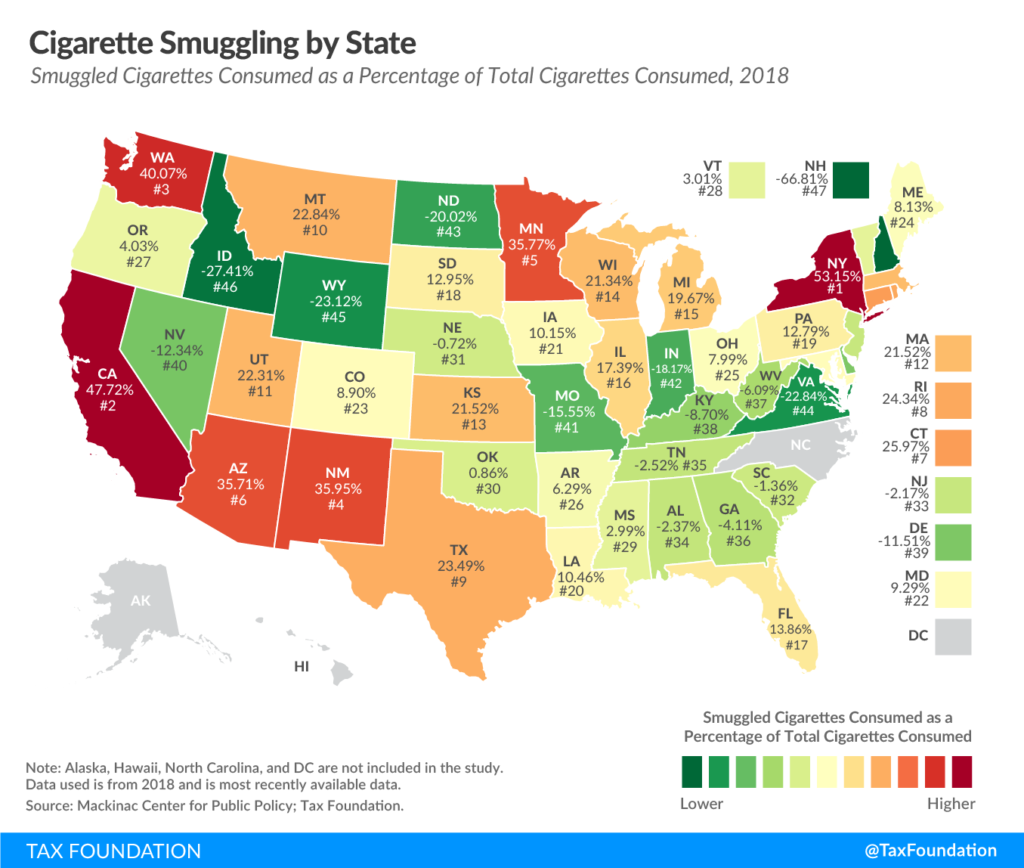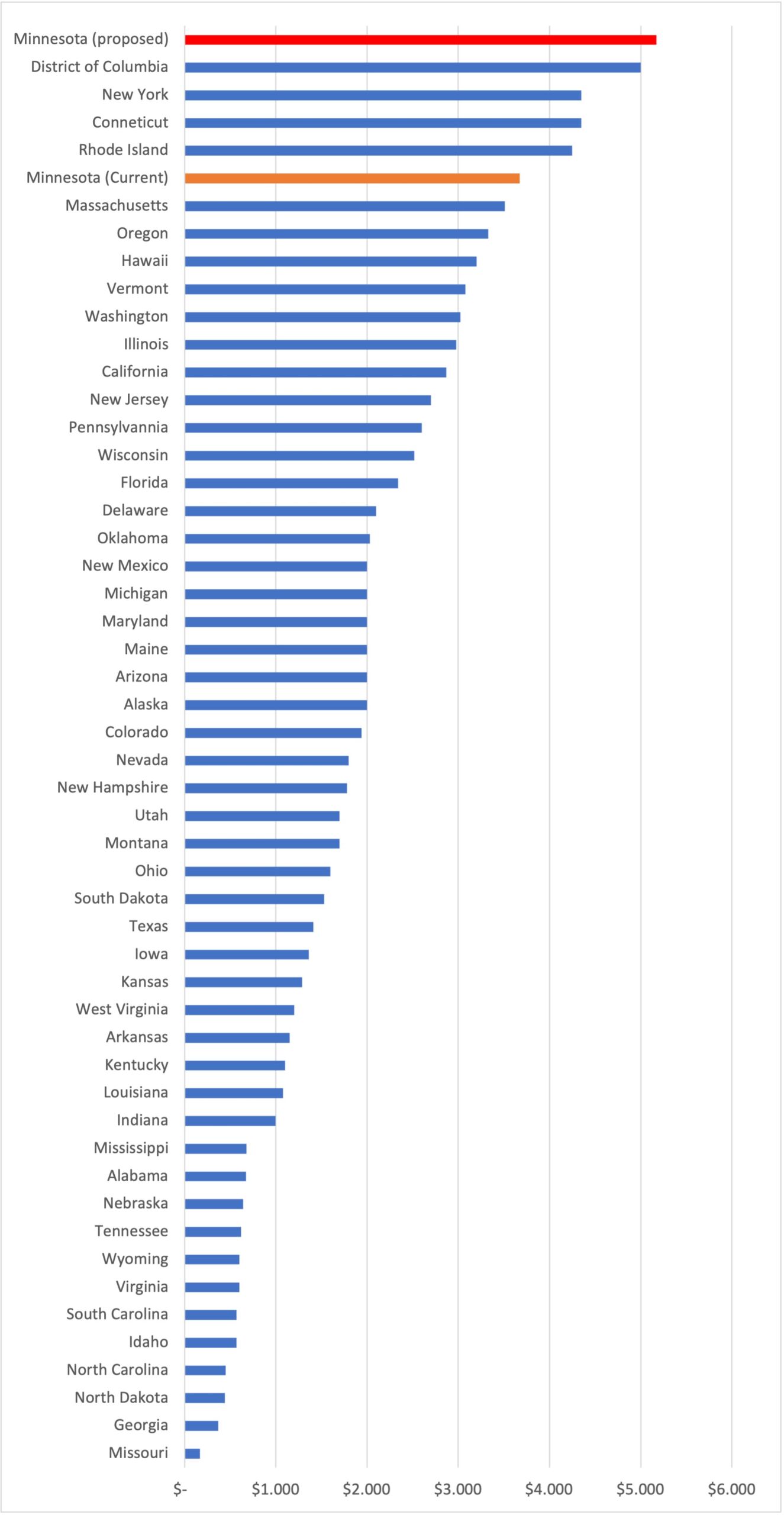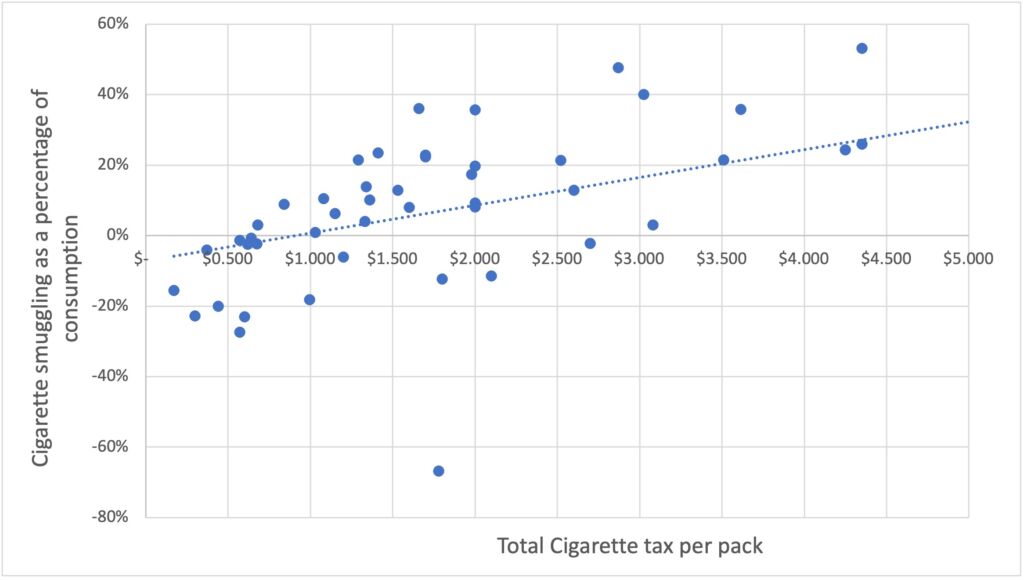A cigarette tax hike will worsen cigarette smuggling in Minnesota
In 2018, Minnesota ranked the fifth highest state in the country for cigarette smuggling. About 36% of cigarettes consumed in Minnesota in 2018 were smuggled from other states. According to a study by the Tax Foundation, Minnesota’s high excise tax rate on cigarettes was to blame for this trend. 
Unfortunately, this is a trend that might get worse, in light of Gov. Walz’s budget proposal. Termed Minnesota’s COVID-19 Recovery Budget, the proposal includes a tax hike on cigarettes that is aimed at raising revenue as well as reducing smoking, especially among the youth. The proposal will raise the tax per pack from $3.04 by $1 “with a correlating moist snuff increase” and will also include “a floor stock tax on existing product”.
High excise taxes on cigarettes = more smuggling
As of current, Minnesota’s $3.04 excise tax per pack of cigarettes is the 9th highest in the nation. Adding the $0.633 cigarette sales tax, the total tax burden per cigarette is $3.673– the fifth highest in the nation. Raising the excise tax by $1.50 will push the tax burden to $5.173 – the highest in the nation. Minnesota will be among the only five states with cigarette excise tax above $4 per pack.

What does this mean for our state? Potentially more cigarette smuggling.
Figure: Smuggling rates and Cigarette taxes per pack

Source: Mackinac Center for Public Policy, The Tax Foundation
Let us, for instance, look at the difference between Minnesota’s proposed rate with that of North Dakota. North Dakota has the lowest excise tax per pack of cigarettes among Minnesota’s 4 neighbors–$.44 per pack. Compared to Minnesota’s current $3.673 tax per pack, a person buying a pack of cigarettes in North Dakota stands to save $3.233per pack. To a smuggler transporting about 100,000 packs, a trip, this represents a profit of $323,000.
Raising the excise tax by $1.50 saves a person buying cigarettes in North Dakota $4.733 a pack and to a big-time smuggler carrying 100,000 packs, a trip profits rise from $323 000 to $470,000. Ergo, raising the cigarette tax makes what was already a lucrative industry, even more lucrative.
The last time that Minnesota raised its excise tax on cigarettes, the smuggling rate for cigarettes doubled as estimated by the Tax Foundation– In 2014, the percentage of cigarettes consumed in Minnesota that were smuggled was 35.5% compared to 18.06% in 2013.
Smuggling hurts our businesses and Minnesota economy
When Minnesota raised its excise tax on cigarettes by 130% in 2013, Minnesota retailers and our economy suffered. Minnesota businesses selling cigarettes saw a decline in taxed tobacco sales. The decline was even more significant for communities around the Minnesota border. In contrast, other states saw a significant increase in cigarette sales after the Minnesota tax hike. Minnesota not only lost business to other states but also tax revenue.
Additionally, tobacco sales are often associated with non-t0bacco sales. This means Minnesota also lost on potential sales of things like gas, snacks, food, and beverages which smokers often buy in companion with tobacco products. All this takes into account, a hike in our cigarette taxes will significantly benefit our neighbors at our expense.
Incentives matter
As Gov. Walz declared in his own voice, taxes do indeed incentive behavior. However, this does not mean people always respond to incentives in the way that politicians expect them to. Taxes on cigarettes, while potentially well-intentioned, do not significantly reduce smoking among intended populations. Instead, price differences between states incentivize people to find lower-priced sellers. In addition, well-connected smugglers also see an opportunity to enter a lucrative market.
Cigarette taxes are already so high in Minnesota. Raising them further will do very little to reduce smoking. However, it will make cigarette smuggling even more profitable.